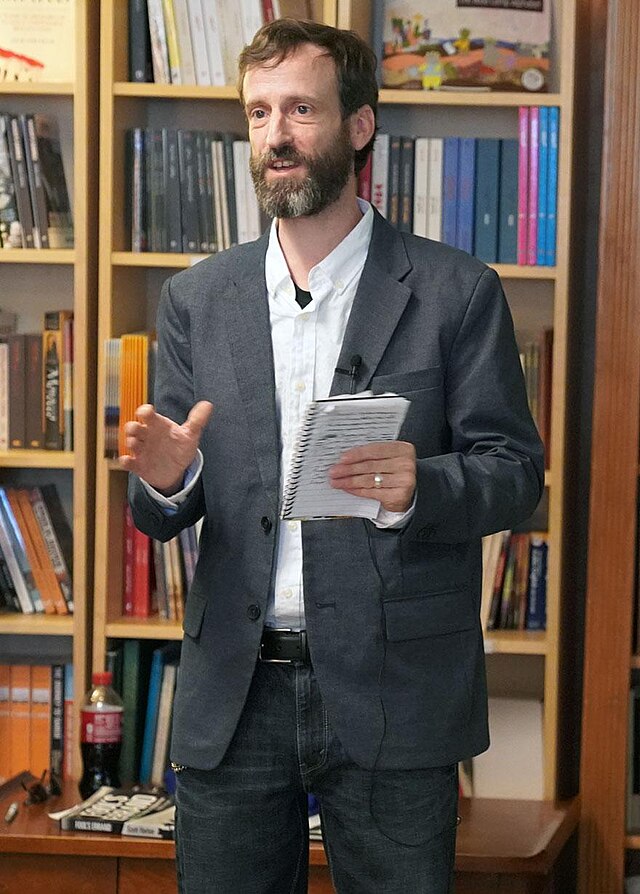Ep. 428 Scott Horton on Knowing They’re Lying About the Wars

Scott Horton talks to Bob about his recent Tucker Carlson performance, as well as identifying key lies about US foreign policy.
Mentioned in the Episode and Other Links of Interest:
- The YouTube version of this conversation.
- This episode’s sponsor, PersistSEO.com.
- Scott Horton’s appearance on the Tucker Carlson show.
- Scott’s archives at the Libertarian Institute. Scott’s books.
- Help support the Bob Murphy Show.

Still surprising to the majority: the name-stealers misidentify who Amalek is.
Figure that out and the world clicks into place.
Also notice Bob’s friend Mr Haman is an Amalekite 😉
“Understanding the potential for misidentification of Amalek
The identity of Amalek and the Amalekites is often misunderstood in various contexts. It’s important to differentiate between the biblical accounts, later Jewish traditions, and modern applications of the term.
1. Biblical accounts
In the Hebrew Bible, Amalek is described as the grandson of Esau, the brother of Jacob, the ancestor of the Israelites. This lineage places the Amalekites within the extended family of Abraham, though in a role of consistent opposition to the Israelites. According to the Hebrew Bible, the Amalekites were a nomadic desert tribe who lived in the Negev and Sinai Peninsula, south of Canaan. Their first notable appearance is recorded in Exodus, where they attacked the Israelites shortly after their exodus from Egypt. This unprovoked attack against the vulnerable Israelite stragglers resulted in a divine curse and a command to “blot out the remembrance of Amalek from under heaven”. Later biblical narratives, such as in the books of Judges and Samuel, depict continued conflict between the Israelites and the Amalekites, with King Saul ultimately failing to completely destroy them as commanded.
2. Jewish tradition and symbolism
In Jewish tradition, Amalek becomes a potent symbol of evil and the archetypal enemy of the Jewish people. The phrase “remember what Amalek did to you” from Deuteronomy is recited annually during the Shabbat preceding Purim, emphasizing the ongoing struggle against those who seek to harm the Jews. Haman, the villain of the Book of Esther, is identified as a descendant of the Amalekite king Agag, reinforcing this symbolism.
However, the nature of this command to “blot out” Amalek has been debated throughout Jewish history. While some have interpreted it literally, others, particularly later rabbis and mystics, have offered allegorical interpretations, viewing Amalek as an internal struggle against evil inclinations (the yetzer hara) within each individual or as a symbol of atheism and the rejection of God.
3. Modern day usage and controversy
In contemporary times, the term “Amalek” has regrettably been invoked in the context of the Israeli-Palestinian conflict, with some Israeli politicians and extremists comparing Palestinians to Amalek. Such comparisons are highly controversial and viewed by many as dangerous incitement to violence, even genocide.
Potential for misidentification arises from:
Confusing the biblical narrative with literal, present-day application: The Amalekites as a distinct nation are believed to be extinct, and rabbinical consensus supports this view. Applying the biblical commands against the ancient Amalekites to modern groups is a distortion of both the historical and spiritual context.
Ignoring the metaphorical and allegorical interpretations within Jewish tradition: Focusing solely on the literal interpretation of biblical commands related to Amalek, while disregarding the rich history of symbolic and introspective readings, can lead to harmful conclusions.
Using the term as a justification for hatred or violence against any group deemed an enemy: The historical use of “Amalek” as a slur against groups like Romans, Nazis, or even other Jews underscores the danger of equating a symbolic enemy with a tangible, vulnerable population.
In conclusion, understanding Amalek requires a nuanced approach, acknowledging both the historical context of the biblical narratives and the later symbolic and allegorical interpretations within Jewish tradition. Misidentifying Amalek in a contemporary context can be a harmful simplification with potentially dangerous consequences”
Horton says Haaretz is the NYT and then quotes it as the gospel truth while having impugned the Holy Bible. He also cites the U.N. as some sort of moral source, saying Israel is breaking their laws, international laws. Maybe the laws happen to coincide with true morality but how does it bolster his position by citing such commie sources? Whenever he’s pinned down for details he gets heated and frenetic and cites these sources as his saving grace. Sounds pretty sketchy.